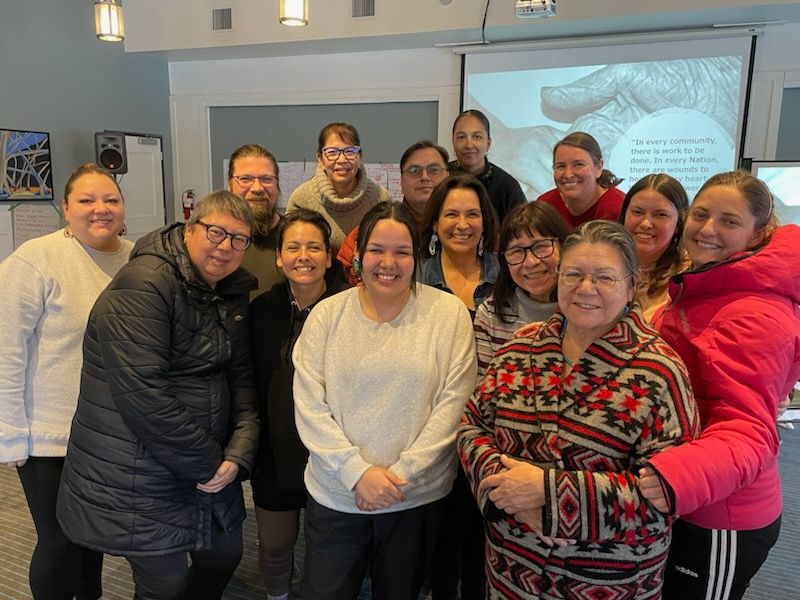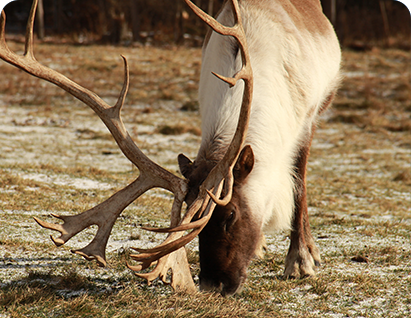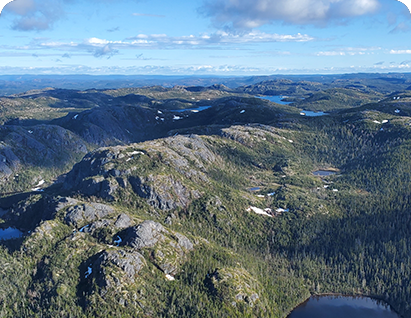Taking trauma into account in collective approaches and organizations
From February 27 to 29, 2024, our Comprehensive Community Planning (CCP) team hosted our first-ever Training Workshop on the Trauma-Informed Approach to Organizations.
CCP coordinators have long wanted to learn how to facilitate safe collective spaces. Community planning is based on trust: people need to feel safe to share their ideas, fears and dreams for their community.
Through a variety of experiential activities, 20 participants representing 14 First Nations and organizations explored the key elements of the approach:
- Understanding trauma and its impact on individuals, organizations and communities
- Reforming the circle: how to move from lateral violence to benevolence
- Integrate the six principles of the approach: safety and trust, choice and voice, strengths and resilience
- Reinforce practices for individual and collective self-care
- Draw up an action plan to integrate the approach into processes and organizations

The training team consisted of Karonhiénhawe Linda Delormier, from the Sandpiper Clan of Kahnawà:ke, Emily Rice, from the Bear Clan of Kahnawà:ke, Émie Rainville, from Pessamit, and Catherine Béland, from the FNQLSDI. Since 2022, they have all been part of the Kahnawà:ke Circle of Trauma-Sensitive Trainers, better known by the acronym TOT.
Integration and practical application
Since the workshop, a number of participants have contacted us to share how they have put the training into practice. They’ve led meetings, given talks, changed the way they work as a team, offered training in their workplace. They have integrated the principles of the approach into their personal and professional lives.
All participants asked for further training on the same theme, and for the training to be offered to their entire community. In collaboration with our partners, we are constantly working to find funding to continue expanding our services.

Gratitude
The original training content was co-developed by our mentors: Suzy Goodleaf, Nancy Rother and Karonhiénhawe Linda Delormier. We thank them for blazing the healing trail for so many years, and for bringing us together so that together, we can help reform the circle.
Thanks to Aboriginal Services Canada, which has been funding our CCP coaching since 2016.
Finally, we’re filled with admiration and gratitude for the 20 participants who dared to explore these difficult and necessary lands with us. It’s an honor to stand beside you: Amanda Simon (Kanehsatá:ke), Bradley Polson (Long Point), Claudia Néwashish (Manawan), Daren Germain (Mashteuiatsh), Francine Whiteduck (Kitigan Zibi), Gaétan Lefebvre (Kitigan Zibi), Iakohawine Delormier (Kahnawà:ke), Karennaienhne Delormier (Kahnawà:ke), Kim Chevrier (Kebaowek), Kimberly Roy (Abitibi8inni), Marc Blanchette-Courtois (Mashteuiash), Marie-Eve Moreau (Essipit), Mélanie Courtois (Mashteuiash), Misko McGregor (Kitigan Zibi), Roy Weistche (Waskaganish), Sabryna Godbout (Wendake), Samuel Rainville (Pessamit), Sandra Rankin (Abitibi8inni), Thérèse Niquay (Manawan) and Yasmine Fontaine (Uashat mak Mani-utenam).



